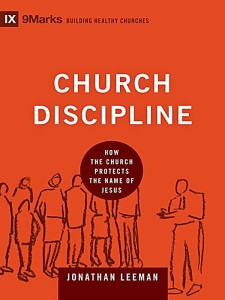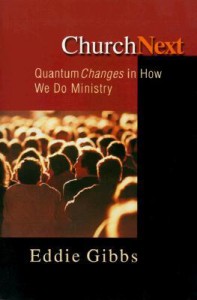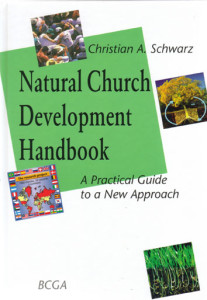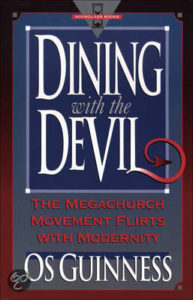
Dining With the Devil: Os Guinness
The Megachurch Movement Flirts With Modernity
From the Publisher: He who sups with the devil had better have a long spoon – Peter L. Berger. Today’s mega church movement should heed this warning, because of its often uncritical use of management and marketing tools to induce growth. Os Guinness provides a perceptive, thoughtful assessment of this powerful movement and its proneness to compromise with modernity. Each chapter concludes with thought-provoking questions for reflection and discussion. The book also includes two unique meditations: Soren Kierkegaard’s “Fishers of Men” and Nathaniel Hawthorne’s “Celestial Railroad.”
“A timely indictment of a secularized evangelical’s that prizes success and worldly acclaim over theology and biblical fidelity.” Donald G. Bloesch, University of Dubuque Theological Seminary
“One would expect this book to be written 100 years from now by an historian looking at this generation in retrospect. Dr. Guinness warns us that our uncritical embracing of modernity is destroying our ability to shape our lives around the biblical truth. This threatens to render meaningless even our most gleaming models of success.” Jim Peterson, The Navigators
“Os Guiness Is pleading for God-centered, dolphin-like freedom for the sake of truth in a sea of modernity. He warns against the floating, jellyfish tendencies of American evangelicalism. I have been mightily helped to swim against the tide.” John Piper
The JPC 60-Second Review: The title of this book by Os Guinness is a bit misleading in that it is not at all a protest against the mega-church, but against the foundations that the church in general is now seeking to build upon. And the charge is a serious one: the church has replaced the authority of Jesus Christ as its foundation and chief cornerstone with the authority of what he calls “modernity,” the “character and system of the world produced by the forces of development and modernization . . .” In a word, the Evangelical church of our time is now a social mall, driven by the great gods (little “g”) of success, relevance, and acceptance: if people like it and it gets them in the building, it is success, and is, therefore, to be embraced. While challenging the self-justification of numbers and growth, Guinness in no way challenges numbers or growth themselves. He instead calls the church back to its true reason for being: not to grow itself, but to grow the Gospel in and through itself – discipleship. This book does not set well along side many of the current “must reads” on store shelves. Such has always been the case: the French are careful not to sell meat in a sweets shop. This book is spiritual meat for it eschews the sweets of pop theology and catchy phrases for transcendent and eternal truth. Churches grown on this kind of thinking and ministry will do more than standing room crowds, they will be able to stand in the presence of Jesus when He comes to judge the earth.
Church Discipline – Jonathan Leeman
From the Publisher: Church discipline is essential to building a healthy church. So how exactly do we practice church discipline?
Jonathan Leeman helps us face the endless variety of circumstances and sins for which no scriptural case study exists, sins that don’t show up on any list and need a biblical framework to be corrected appropriately in love.
Here is a contemporary and concise how-to guide that provides a theological framework for understanding and implementing disciplinary measures in the local church, along with several examples of real-life situations and the corresponding responses.
JPC 60-Second Review: Don’t let the title fool you. Church Discipline by Jonathan Leeman is much, much more than a book on HOW to discipline unruly church members. it is a concise, but rich tome on the nature and purpose of the church and church membership in light of the Gospel.
The book is written in two parts. Part I seeks to establish the Gospel as the framework for church discipline, and believe me, you really do want to read this section – you’ll come away refreshed in your understanding of, love and appreciation for the church, and so, strengthened in your resolve to lovingly protect the church from doing harm to name of Jesus. He delves into the “whys” of church discipline, of course, describing its purpose as that of loving the individual, loving the church, loving the watching world, and loving Jesus Christ, protecting His name.
Leeman also defines church discipline, referring us to the classic definitions of “formative” and “corrective” discipline, tying “discipline” to “dicipleship.” Yes, he examines and explains the perceived differences between the disciplinary processes prescribed by Jesus and by Paul – excellent.
Part II of the book seeks to help the reader apply Part I’s framework in real world cases, citing examples like “The Addict,” “The Adulterer,” and “The New Believer.” Highly recommended, Church Discipline is not just for pastors, but for all church members (in other words, all believers) who desire to protect the name of Jesus Christ, Savior of the World and Lord of All.
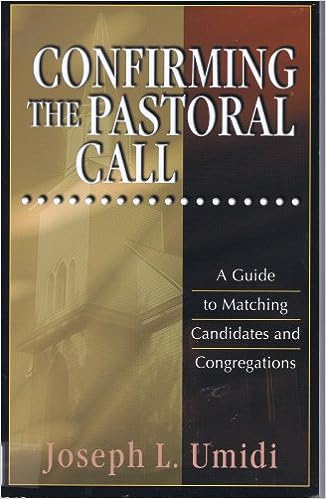
Confirming the Pastoral Call by Joseph L. Umidi
A Guide to Matching Candidates and Congregations
With humor and insight born of experience, Joseph Umidi tells candidates how to approach a selection process by clarifying personal vision for ministry, connecting heart-to-heart with decision makers, and asking the right people the right questions. Search committee members will find guidance in analyzing a church’s readiness for change, determining what is most needed now, and judging a candidate’s strength in meeting those needs. Eleven appendixes provide key model documents that will help the decision-making process.
JPC 60-Second Review: Not just a must-read for every church and pastor, but a must-have on our shelves. Matching pastor and church is much like marriage: we can have two great people but it doesn’t mean their great for each other. Sadly, many churches and prospective pastors approach each other like couples: romantically rather than realistically. Umidi’s work will help you or your church deal with the nuts and bolts of understanding each other and understanding the will of God in this process.

THE TRELLIS & THE VNE – COLIN MARSHALL & TONY PAYNE
From the Publisher: “This is the best book I’ve read on the nature of church ministry”, says Mark Dever.
All Christian ministry is a mixture of trellis and vine. There is vine work: the prayerful preaching and teaching of the word of God to see people converted and grow to maturity as disciples of Christ. Vine work is the Great Commission. And there is trellis work: creating and maintaining the physical and organizational structures and programs that support vine work and its growth.
What’s the state of the trellis and the vine in your part of the world? Has trellis work taken over, as it has a habit of doing? Is the vine work being done by very few (perhaps only the pastor and only on Sundays)? And is the vine starting to wilt as a result?
The image of the trellis and the vine raises all the fundamental questions of Christian ministry: * What is the vine for? * How does the vine grow? * How does the vine relate to my church? * What is vine work and what is trellis work, and how can we tell the difference? * What part do different people play in growing the vine? * How can we get more people involved in vine work?
In The Trellis and the Vine, Marshall and Payne answer these urgent questions afresh. They dig back into the Bible’s view of Christian ministry, and argue that a major mind-shift is required if we are to fulfill the Great Commission of Christ, and see the vine flourish again.
JPC 60-Second Review: In a day when style and aesthetics seem to trump substance in the church, “Trellis” challenges the status quo. In a day when drawing a crowd is more important to many than making disciples and equipping people for ministry, “Trellis” dares to put the commands and teaching of Jesus back at center stage. Calling pastors and churches back to their New Testament creation, call, and ministry, Marshall and Payne help us take a fresh look at what we are doing in the name of Jesus, and refocus on the biblical commands to be the body of Christ in ministry. This is one of the most unique books you’ll ever read on the church. Not for what it teaches, but for how it teaches it – simple. creative, focused and instructive. You can look to the cultural around you for your church model, dancing along with every faddish wind and wave, or you can build your church according to the teachings of the New Testament: orthodox in doctrine yet creative in expression. “Trellis” will certainly help you do just that. Highly recommended.
CHURCH NEXT: EDDIE GIBBS
From the Publisher: What will the church be next? CHANGE IS NOW. Competition from nontraditional and Eastern religions join with the pressures of both modernism and postmodernism to squeeze Christianity. While new church models have sprung up to meet these challenges, they each have strengths and limitations.
Gibbs, a well-known church strategist and practitioner, candidly analyzes these models while proposing nine areas in which the church will need to transform to be biblically true to its message and its mission to the world.
With vigor and insight Gibbs shows how we can move from living in the past to engaging the present
from being market driven to being mission oriented from following celebrities to encountering saints
from holding dead orthodoxy to nurturing living faith from attracting a crowd to seeking the lost
Here is a book that brings together deep understanding of the quantum shifts taking place in our culture along with concrete suggestions for implementing a proactive mission strategy.
JPC 60-Second Review: A church and leadership guru (not that he would refer to himself that way), Gibbs is a favorite of Journey for his love and respect for the local church, for having his finger on the pulse of the church and culture, and his ability to blend the rich tradition (not traditionalism) of the church with cutting edge ministry for the day. “Church Next” is both familiar and innovative as it exegetes the New Testament church and present day culture, reinforcing the principles of the New Testament church while applying them to today. In other words, Gibbs is rock solid in his grip on Scripture while advising the church that it can and must transform itself in how it lives and ministers in the 21st-century. Read this one and you’ll find yourself searching the online shelves for more from Eddie Gibbs. Highly recommended.
NATURAL CHURCH DEVELOPMENT – CHRISTIAN A. SCHWARZ
From the Publisher: Schwarz has done extensive research world-wide and found that healthy, growing churches seem to share eight quality characteristics.
These characteristics are:
Empowering leadership Gift-oriented ministry
Passionate spirituality Functional structures
Inspiring worship service Holistic small groups
Need-oriented evangelism Loving relationships
Schwarz uses the illustration of a barrel with eight staves to symbolize the eight quality characteristics. The barrel can only hold water to the height of the lowest stave. So too, Schwarz argues, a church can only grow as far as their ‘Minimum factor,’ which is the lowest of the eight quality characteristics in their church. He challenges churches to resist the temptation to work on improving areas in which they already excel, for by doing this they do not increase their minimum factor or their church quality.
JPC 60-Second Review: A wonderful primer on church ministry. As we talk with church planters, pastors and professors of practical ministry, this is a title that we hear again and again as a “must read.” Based on painstaking research in and of local churches around the world (no, not just America, but literally around the world) and then presented in churches around the world, NCDH and its implementation manual represent field-tested knowledge that has the potential to radically change your understanding of not just THE church, but YOUR church. After reading NCDH, you will be able to identify the strengths and weaknesses of your church, where the “leaks” are, why your church is not growing, and what you need to do to be more effective in building a strong, Gospel-centered body of believers. I was privileged to hear the author speak in Brussels, Belgium in the mid-90s and to participate in his ongoing research. It was there that I was made aware of this great tool and became convinced of its value. The years have only intensified my appreciation of its value for the pastor and local church. Highly recommended.
Recent Tweets
JPC Instagram
© [2015] — Journey Pastoral Coaching


